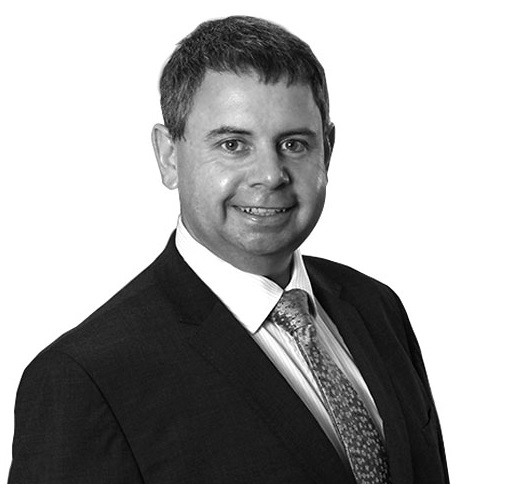Share information and reform reporting to help accountants fight fraud
 John Cullen explains how accountants can play their part in fighting fraud most effectively
if they have access to key information.
John Cullen explains how accountants can play their part in fighting fraud most effectively
if they have access to key information.
Every year, enormous quantities of money are laundered across the globe. Government estimates vary, but it is thought that about $90bn a year is coming through the UK, much of this through property.
It is inevitable that this money will eventually come into contact with finance professionals, and this may give rise to allegations of widespread ethical failure.
Obviously, this can only happen if people with finance skills are behaving badly. But the idea that many professional accountants are ‘enablers’ of crime is over-simplistic.
Dirty money and the problem with detection
For one thing, it is not always obvious when money is 'dirty'. Millions made selling drugs or guns is one thing, but the situation is rarely that straightforward. Since the 1990s, there has been widespread extraction of funds from foreign industry. But if the money is deemed legal in the country of origin, there are potential issues of diplomacy.
Then there is the issue of time. Heroin peddled yesterday is clearly criminal, but a suspicious company sell-off 25 years ago is slightly different. Some of the accountants dealing with the proceeds probably weren’t even born when it happened.
Sharing intelligence
This may seem like splitting hairs, but it is important. Finance professionals must be able to understand what is, and is not, the proceeds of crime. And to do that, they need to be given this information by the security services.
There are obvious reasons why intelligence and law enforcement agencies value secrecy, but is it entirely reasonable to hold accountants liable for handling dirty money if they have not been fully apprised of the facts? Professional accountants strive to act to the highest ethical standards at all times, and are subject to codes, guidance and regulations to maintain this. It is difficult to avoid dealing with crooks if you are at no point told that your clients are breaking the law.
Leading the way
The truth is that professional accountants are working hard to support law enforcement. Last year's Financial Action Task Force’s Mutual Evaluation Report makes it very clear that the UK has a good regime by global standards – and points to the many positive improvements made in the last few years. Of course, there is more to be done, but in many ways, Britain is leading the way in fighting economic crime.
Between 2010 and 2015, Britain filed more Suspicious Activity Reports (SARs) than the rest of Europe combined. So many, in fact, that the Financial Intelligence Unit was overwhelmed and asked the Law Commission to investigate. The Law Commission concluded that a low threshold for criminal behaviour, from any finance professionals, combined with individual liability, was causing the increase in volume, stating that, ‘professionals and employees will report rather than risk prosecution for failure to do so'.
This is something of a catch-22. If finance professionals do not report, they face accusations of enabling. On the other hand, report too much, and there are complaints about generating too much paperwork.
Next steps in the fight against fraud
And yet the problem persists – huge amounts of money are being laundered.
There’s a need to match the talk, and the suspicions, with action. Hitherto, the action has had limited success. New Money Laundering Regulations brought in in 2007 introduced 20 new offences of financial crime, yet there were no convictions until the first in 2012, five years later, and over the last decade, there have been just four more.
It appears that the regime could be more effective.
The Consultative Committee of Accountancy Bodies (CCAB) believes that three suggested changes to the approach could radically change the fight against fraud:
- The first is proper intelligence sharing. If law enforcement agencies can share more (and better) intelligence with regulators, supervisors and finance professionals, they can act.
- The second is case transferring. Accountancy, as represented by those bodies that are chartered and therefore obliged to work in the public interest, is a regulated profession, and bad behaviour results in sanctions. If the security services do not have enough proof to build criminal cases – or if they do not have the resources to investigate – why not pass the cases on to regulators?
- The third is reforming the reporting regime. The SARs regime was designed for banks, not other professionals, and needs modernisation. Currently, it does not even have data-searchable fields. That means there is no way to arrange information by group, such as type of transaction or location. Upgrading the reporting system could make a real difference.
It is important to note that this would not catch out the crooked bookkeepers who are outside the regulated professions. But it would connect the finance profession and law enforcement, and would allow them to work collaboratively in the fight against economic crime.
And, almost as importantly, it would make a real statement that the finance profession is not part of the problem – it is part of the cure.
About the author
 John Cullen is chairman of the CCAB, which comprises five professional accountancy bodies:
John Cullen is chairman of the CCAB, which comprises five professional accountancy bodies:
- The Institute of Chartered Accountants in England and Wales (ICAEW)
- The Association of Chartered Certified Accountants (ACCA)
- The Institute of Chartered Accountants of Scotland (ICAS)
- The Chartered of Public Finance and Accountancy (CIPFA)
- Chartered Accountants Ireland
The combined membership of the five CCAB bodies amounts to over 275,000 professional accountants in the UK and the Republic of Ireland (over 415,000 worldwide). CCAB provides a forum for the bodies to work together collectively in the public interest on matters affecting the profession and the wider economy.
CCAB’s credibility stems from its insight into all areas of finance and accounting, from finance director and audit partner to management accountants, professional advisers, public sector finance leaders and entrepreneurs.
See also
